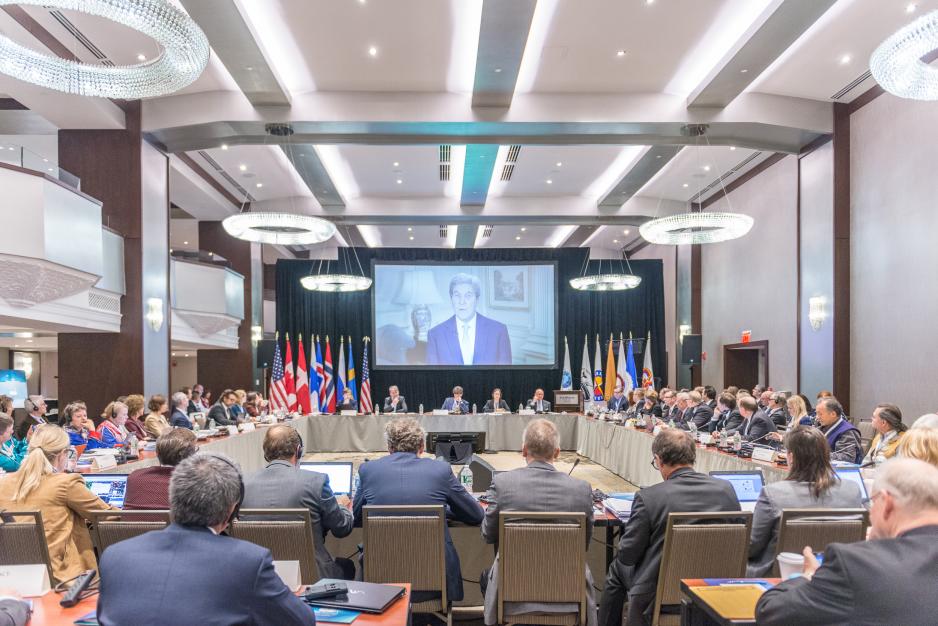Almost Finnish; US to end chairmanship on science note

Washington expects that it will be able end its Arctic Council chairmanship with a major agreement on science co-operation. Helsinki, meanwhile, is preparing for a mix of old and new issues.
After gathering for three days of high-level talks in Portland, Maine, from the 5th of October, 250 representatives from Arctic states, indigenous groups and observers to the Arctic Council say they expect to be able to sign major agreement on scientific co-operation during the organisation's next biennial summit, in May.
All but the final details of the Arctic Science Co-operation Agreement remain to be worked out, David Balton, a senior US diplomat who currently chairs the Senior Arctic Officials, high ranking officials responsible for the day-to-day interaction between council members, told the media on Friday during a briefing about the meeting’s proceedings.
“The agreement is almost done,” he said. “There are a number of small things still to be worked out between now and when it is to be signed.”
SEE RELATED: Maine meeting brings Arctic business out of area
The agreement will make it easier for scientists to travel to Arctic countries and to share research results. When signed, it will be just the third binding agreement in the 20 year history of the council. (The two others relate to search-and-rescue and oil spill response.)
“There are a dozen or so nations from outside the Arctic region that participate in the Arctic Council as observers,” Mr Balton said. “We had a special session with them and the other observers this week here in Portland. And one thing I heard from them is that there is a lot of satisfaction with this agrement. They see a lot of benefit to their own scientific work in the Arctic.”
Mr Balton declined to go into detail about many of the other main topics of discussion during this week’s session, which were described in a statement released the previous day and include climate change and streamlining work of the council.
In addition, the meeting devoted part of its first day to discussions about the role of observers. One question that has been hanging over the council since 2015 is whether new observers will be added during the May summit, in Fairbanks. No new observers were admitted during the 2015 summit because the council wanted more time to review the role of the current crop of 33 observers.
SEE RELATED: Editor’s Briefing | Power to the council
That challenge, Mr Balton admitted, has not been made any easier by the growing list of applicants to become observers, which he said now stands at 18, including four countries (Greece, Turkey, Switzerland and Mongolia) and 14 other organisations (ranging from Greenpeace to oil and gas interests).
Although it appeared no decisions about observers had been made, Mr Balton indicated that it was unlikely all of the applicants would be added to what he called an already unwieldy number.
“We need to take a hard look and figure out which of the applicants could really make significant contributions to the work and maybe focus on those.”
Also discussed during the briefing was the effect the arrival of a new administration in Washington this January will have. Mr Balton said the State Department had known from the outset of its chairmanship that a changeover would take place, regardless of the election's outcome, and that it had sought to prepare for it by selecting priorities they felt would be carried on by a new administration from either party.
SEE RELATED: Iceland asking for IASC
After Washington bows out as chairman, it will be Helsinki that takes the reins. Diplomats describe the Finns’ preparations for its chairmanship as “well thought-out” and “meticulous”, noting that they have conducted numerous meetings with other council participants, in particular Reykjavík, which is next in line.
The full Finnish programme has yet to be finalised, but Mr Balton revealed that Helsinki will continue several of the US chairmanship’s priorities, including working towards a strategic plan that will guide the work of the council in the future. The plan is expected to be completed by 2019, in connection with the handover of the chairmanship to Iceland.
Helsinki is also expected continue work of the council’s marine co-operation and telecoms infrastructure task forces, while also setting meteorology and education as two of its main focus areas for the coming two years.
As one chairmanship prepares to end, a Finnish one appears more than ready to begin.
This Article was first published in The Arctic Journal.
